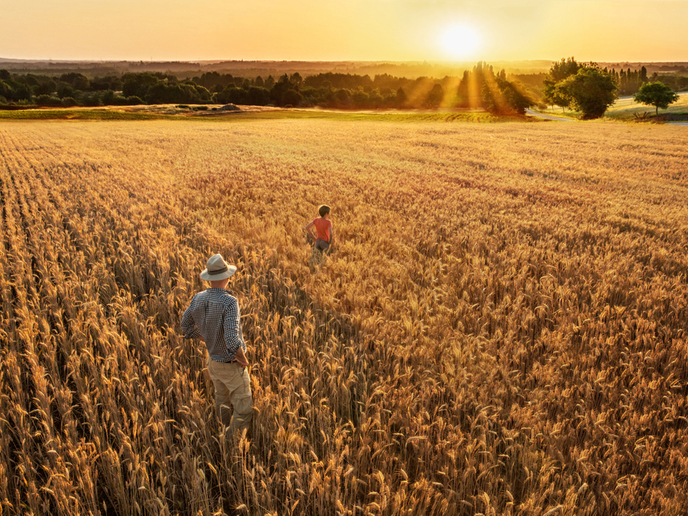Looking to the future of family farms in Ireland
Family farms play a key role in rural development and the agricultural sector. They make rural economies more competitive and sustainable, ensure food security, improve livelihoods and protect the environment. The Food and Agriculture Organization of the United Nations has dubbed family farmers the agents of change the world needs to achieve zero hunger, a more resilient planet and sustainable development. Unfortunately, family farm numbers are dropping across Europe as farmers struggle with issues relating to climate change, viability, structural changes and succession of the farm to the next generation. Young farmers often fail to take over their family farms because of problems relating to farm viability and the lack of innovative agricultural practices such as organic farming. Although organic farming across most of Europe has been steadily growing, its progress in Ireland has been limited so far. A new study conducted as part of the EU-funded RURALIZATION project now examines the impact of organic farming on farm viability and succession in Irish family farms. The research findings have been published in the journal ‘Sustainability’. Researchers from RURALIZATION project partner National University of Ireland Galway (NUI Galway) carried out a qualitative case study with a group of Irish organic farmers taking part in the European Innovation Partnership ‘Agricultural Productivity and Sustainability’ (EIP-AGRI) project Maximising Organic Production System (MOPS). The case study consisted of a phased approach, which began with a desk-based analysis, moved on to semi-structured interviews and a focus group, and then on to a final feedback session.
Organic farming as a catalyst
The study showed that adopting innovative practices not only makes farms more viable but also encourages the next generation of young farmers to take up the mantle and continue the family’s farming tradition. “What has also become apparent is that there are opportunities, not only in the development trajectory of existing organic producers, but, importantly, that organic farming can act as a catalyst in attracting new entrants to the agricultural sector,” the authors state in the study. “This is a particularly important aspect as it will most likely become a vital contributor in ensuring that the ambitious and challenging growth projections for the industry which are set out in the European Union’s Farm to Fork strategy are met.” According to the NUI Galway researchers, the model presented by the MOPS project “can support the greater economic and environmental sustainability of organic horticulture in Ireland. The collaborative production it supports on farms assists horticulture producers to tailor their production to market demands. The focus on the increasing use of green cover crops and minimising external nutrient inputs supports a greater environmental sustainability.” The RURALIZATION (The opening of rural areas to renew rural generations, jobs and farms) case study also showed how dealing with issues related to farm viability through group cooperation can help improve viability, with added benefits of spin-off knowledge sharing and innovation. “Another important finding,” the authors write, “is the pathway into organic farming of the returning successor. This has relevance for policy. Targeted support that incentivises the returning successor could attract those back into farming who have left to pursue education and employment elsewhere. This is potentially a broader way forward for policy, which identifies different types of successors and new entrants, and targets supports specifically to their needs.” For more information, please see: RURALIZATION project website
Keywords
RURALIZATION, farm, farming, organic farming, family farm, farm succession, rural



